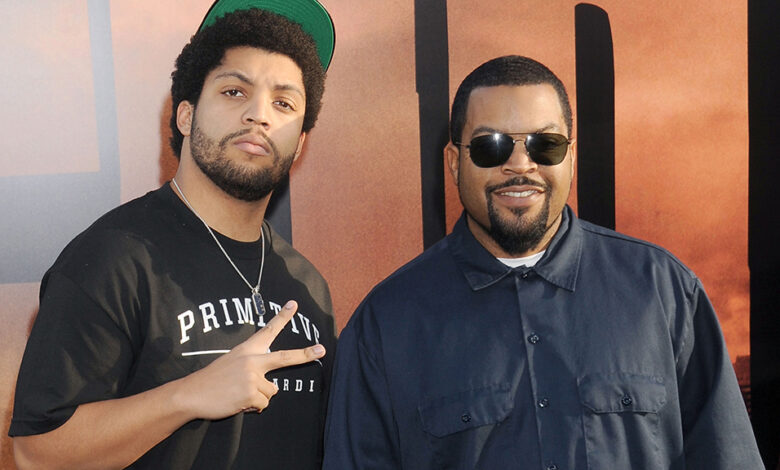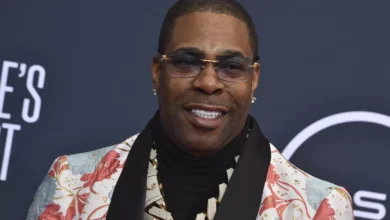Inside Ice Cube and N.W.A’s Beef

In the late 1980s, N.W.A. revolutionized hip hop with their raw, unapologetic sound and powerful commentary on life in South Central Los Angeles. But behind the group’s meteoric rise was a storm brewing — one that would ultimately erupt into one of rap’s most iconic and influential feuds. At the center of it all? Ice Cube, the lyrical architect of N.W.A.’s biggest hits, and his fallout with the group that put him on the map.
Here’s a closer look inside the beef between Ice Cube and N.W.A. — a conflict fueled by money, loyalty, and pride, that left a lasting legacy on the genre.
The Rise of N.W.A.: Unity in Rebellion
Formed in 1986, N.W.A. (Niggaz Wit Attitudes) was made up of Eazy-E, Dr. Dre, MC Ren, DJ Yella, and Ice Cube. Their 1988 debut album Straight Outta Compton shocked America and launched gangsta rap into the mainstream. Ice Cube’s pen game was crucial — he wrote the majority of the group’s most scathing and impactful verses.
But behind the scenes, tensions were simmering. Cube began to question the group’s financial structure and where the money was going.
The Root of the Beef: Money and Management
Ice Cube’s departure in 1989 stemmed primarily from disputes over royalties and how N.W.A. earnings were being handled by manager Jerry Heller and Eazy-E, who had formed Ruthless Records. Cube claimed he was being underpaid, despite contributing heavily to the group’s lyrics and creative direction.
When attempts to resolve the issues failed, Cube left the group — a bold move for an artist just beginning his solo career. At the time, many doubted whether he could survive outside the N.W.A. machine.
Cube’s Response: “No Vaseline” — One of the Hardest Diss Tracks Ever
In 1991, Ice Cube released Death Certificate, and with it came the infamous diss track “No Vaseline.” The song pulled no punches, calling out Eazy-E, Jerry Heller, Dr. Dre, MC Ren, and DJ Yella with brutal precision.
“You lookin’ like straight Bozos / I saw it comin’, that’s why I went solo…”
Cube’s accusations ranged from being exploited financially to being manipulated by Heller. The track stunned the hip hop world, not only for its lyrical venom but for how directly it named names and exposed the inner workings of one of rap’s most influential groups.
Many hip hop heads still consider “No Vaseline” one of the greatest diss tracks of all time — a surgical takedown that showcased Ice Cube’s raw lyricism and strategic brilliance.
N.W.A.’s Response: Silence and Subtle Shots
N.W.A. never dropped a full-scale diss track in response to “No Vaseline.” However, prior to Cube’s diss, the group had taken subliminal shots at him on their 100 Miles and Runnin’ EP and Niggaz4Life album.
Lines like “We started with five, but yo / One couldn’t take it — so now it’s four, ’cause the fifth couldn’t make it” were clear jabs at Cube’s exit. Still, the group seemed to avoid a full-blown lyrical war — possibly because Cube’s track left little room for retaliation.
The Aftermath: A Shift in West Coast Hip Hop
The N.W.A. split sent shockwaves through hip hop. Ice Cube’s solo career took off, with albums like AmeriKKKa’s Most Wanted and The Predator receiving critical acclaim and commercial success. Meanwhile, N.W.A. began to dissolve from the inside — with Dr. Dre eventually leaving the group and Ruthless Records to co-found Death Row Records.
The beef helped define the early 90s in West Coast rap, laying the groundwork for future conflicts and establishing diss tracks as a central part of rap culture. But more than anything, it symbolized the tension between artistry and business — a theme that still resonates in the music industry today.
Reconciliation and Legacy
Despite the intense animosity during the early 90s, Ice Cube eventually reconciled with Dr. Dre and even Eazy-E before the latter’s untimely death in 1995 from complications related to AIDS. In later interviews, Cube expressed that while he never regretted leaving the group, he did value what they had accomplished together.
The 2015 film Straight Outta Compton helped reframe the story of N.W.A. for a new generation, showing both the brotherhood and the betrayal that defined their run. Ice Cube, as a co-producer of the film, ensured the story was told from all angles — raw, real, and honest.
The beef between Ice Cube and N.W.A. wasn’t just a clash of egos — it was a defining moment in hip hop history. It highlighted the importance of business knowledge in the music world and proved that even in the face of betrayal, talent and conviction can carve a path forward. Ice Cube didn’t just survive without N.W.A. — he thrived, becoming one of hip hop’s most enduring legends.




